Monthly Presentations for 2018
January 2018 Meeting
Tuesday, January 16, 2018, Ancestry.com
Presenter, Sharon Cook NacInnes
.jpg) Presentation Description: Sharon Cook MacInnes, a Society friend and past board member, presented a detailed summary of the website Ancestry.com, an essential tool for today's genealogists. She concentrated on some of the changes, particularly in the areas of searching and online trees.
Presentation Description: Sharon Cook MacInnes, a Society friend and past board member, presented a detailed summary of the website Ancestry.com, an essential tool for today's genealogists. She concentrated on some of the changes, particularly in the areas of searching and online trees.Sharon MacInnes is a Certified Genealogist with over forty years of family research experience focusing on Pennsylvania and land records. She is co-coordinator and instructor of Pennsylvania course for Genealogical Research Institute of Pittsburgh (GRIP) and author/compiler of eight volumes in a series covering the earliest landowners of various Pennsylvania counties. She maintains a website at http://ancestortracks.com on which is posted 19th-Century Pennsylvania landowner maps and atlases as a service for researchers. Sharon is an alumna of the National Institute of Genealogical Research (NIGR) at the National Archives; the Institute of Genealogy and Historical Research (IGHR); and the Genealogical Research Institute of Pittsburgh (GRIP). She specializes in Pennsylvania research and land records. CLICK HERE FOR VIDEO
February 2018 Meeting
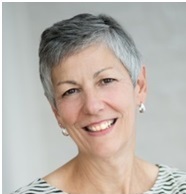 Presentation Description: In her presentation, Malissa will share textual record finds that have shed new light on her family tree and inspire you to visit (or re-visit) the National Archives Building in downtown Washington, D.C.
Presentation Description: In her presentation, Malissa will share textual record finds that have shed new light on her family tree and inspire you to visit (or re-visit) the National Archives Building in downtown Washington, D.C.
Tuesday, February 20, 2018 A Federal Family Tree: Research at Archives I
Presenter, Melissa Ruffner
 Presentation Description: In her presentation, Malissa will share textual record finds that have shed new light on her family tree and inspire you to visit (or re-visit) the National Archives Building in downtown Washington, D.C.
Presentation Description: In her presentation, Malissa will share textual record finds that have shed new light on her family tree and inspire you to visit (or re-visit) the National Archives Building in downtown Washington, D.C.Melissa Ruffner holds degrees in law and library science. After working in a variety of fields, she heeded the call of genealogy in 2009, becoming a Board-Certified Genealogist® in 2014. She is the director of the Genealogical Institute on Federal Records (Gen-Fed), formerly known as the National Institute on Genealogical Research (NIGR), held annually at the National Archives (NARA) in Washington, D.C. She has served on the Executive Board of the Maryland Genealogical Society since 2012 and was recently appointed managing editor of its journal, a scholarly publication issued three times a year. She is currently working for the Georgetown Memory Project, tracing descendants of slaves sold by Jesuit Maryland plantations in 1838.
(The video from this presentation was outdated and deleted in August 2018 at the request of the speaker)
March 2018 Meeting
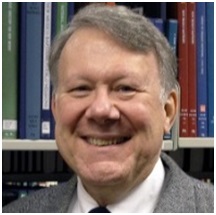 Presentation Description: Most genealogists want to prepare family histories that future generations will cherish. Not all succeed. Many genealogies contain only “harvested” information, which our descendants will be able to obtain themselves (perhaps more easily than we can today). Some of that information likely is wrong. We begin to create worthwhile and accurate family histories by collecting and sharing family stories and DNA test results—information that might soon disappear. Our research progresses from that starting point toward the goal of a printed, computerized, or online family history. If we pay attention to four factors: biography, accuracy, documentation, and explanation—our history will be irreplaceable.
Presentation Description: Most genealogists want to prepare family histories that future generations will cherish. Not all succeed. Many genealogies contain only “harvested” information, which our descendants will be able to obtain themselves (perhaps more easily than we can today). Some of that information likely is wrong. We begin to create worthwhile and accurate family histories by collecting and sharing family stories and DNA test results—information that might soon disappear. Our research progresses from that starting point toward the goal of a printed, computerized, or online family history. If we pay attention to four factors: biography, accuracy, documentation, and explanation—our history will be irreplaceable.
Tuesday, March 20, 2018, Creating a Family History of Lasting Value
Presenter, Tom Jones, Ph.D., CG, CGL, FASG, FUGA, FNGS
 Presentation Description: Most genealogists want to prepare family histories that future generations will cherish. Not all succeed. Many genealogies contain only “harvested” information, which our descendants will be able to obtain themselves (perhaps more easily than we can today). Some of that information likely is wrong. We begin to create worthwhile and accurate family histories by collecting and sharing family stories and DNA test results—information that might soon disappear. Our research progresses from that starting point toward the goal of a printed, computerized, or online family history. If we pay attention to four factors: biography, accuracy, documentation, and explanation—our history will be irreplaceable.
Presentation Description: Most genealogists want to prepare family histories that future generations will cherish. Not all succeed. Many genealogies contain only “harvested” information, which our descendants will be able to obtain themselves (perhaps more easily than we can today). Some of that information likely is wrong. We begin to create worthwhile and accurate family histories by collecting and sharing family stories and DNA test results—information that might soon disappear. Our research progresses from that starting point toward the goal of a printed, computerized, or online family history. If we pay attention to four factors: biography, accuracy, documentation, and explanation—our history will be irreplaceable.Tom Jones has been pursuing his ancestry since 1963. For the first twenty-five years he was clueless about what he was trying to accomplish and how to do it. When he started climbing the genealogy learning curve he repeatedly experienced the challenges, joys, and rewards of reliably tracing his ancestors and fully understanding their lives. He eventually became an award-winning writer, a Board-certified genealogist, and editor of theNational Genealogical Society Quarterly which he has co-edited for the past 15 years.
He is the author of two textbooks: Mastering Genealogical Proof andMastering Genealogical Documentation. He is a professor emeritus at Gallaudet University in Washington, D.C. Tom speaks at week-long genealogy institutes, weekend seminars, and local, national, and international genealogy conferences. He writes frequently on genealogical evidence, proof, and problem solving. CLICK HERE FOR VIDEO
April 2018 Meeting
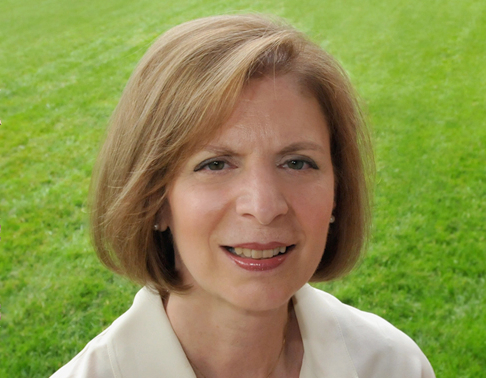 Presentation Description: FamilySearch.org is the world's largest free family history website and is constantly being updated. This lecture will highlight many of the recent changes.
Presentation Description: FamilySearch.org is the world's largest free family history website and is constantly being updated. This lecture will highlight many of the recent changes.
Whats New on FamilySearch
Presenter: Carol Kostakos Petranek
 Presentation Description: FamilySearch.org is the world's largest free family history website and is constantly being updated. This lecture will highlight many of the recent changes.
Presentation Description: FamilySearch.org is the world's largest free family history website and is constantly being updated. This lecture will highlight many of the recent changes.Family Search is the repository of millions of records, both U.S. and foreign countries. It also has a research wiki, a robust family tree, free online classes, and social media connections. This presentation will provide an update on all features of the website, such as specific steps to effective searching of its contents, including indexed, non-indexed, and microfilm. There will also be an overview of the collaborative FamilyTree.
Carol serves as a Co-Director of the Washington, D.C. Family History Center where she coordinates classes, conferences and community outreach projects. She is a Citizen Archivist at the National Archives in Washington, D.C. and volunteers as a Genealogy Aide in the Research Room. Carol is the Volunteer Coordinator for a FamilySearch/Maryland Archive digitization project of Probate and Estate Records. She is a Research Specialist in Hellenic (Greek) Genealogy and supports this community through her participation in websites, conferences and lectures. Carol gives presentations on various genealogy topics, and writes and edits personal and family histories.
(The video from this presentation was outdated and deleted in October 2018 at the request of the speaker)
May 2018 Meeting
 Presentation Description: Family stories usually contain at least some true facts. But what do you do when almost nothing is true? This program demonstrates how a 25 year brick wall was broken down.
Presentation Description: Family stories usually contain at least some true facts. But what do you do when almost nothing is true? This program demonstrates how a 25 year brick wall was broken down.
Myths, Fairy Tales, and Stories Grandma Told
Presenter: Charles S. "Chuck" Mason, Jr., CG.
 Presentation Description: Family stories usually contain at least some true facts. But what do you do when almost nothing is true? This program demonstrates how a 25 year brick wall was broken down.
Presentation Description: Family stories usually contain at least some true facts. But what do you do when almost nothing is true? This program demonstrates how a 25 year brick wall was broken down.
Chuck is a Certified Genealogist, specializing in Southern New Jersey and 19th and 20th Century Death Records. He is a graduate of National Genealogical Society’s (NGS) American Genealogy: Home Study Course, (1994), and has been a grader for the course for many years. He currently teaches for the NGS’s American Genealogical Studies and is a graduate of the National Institute for Genealogical Research (NIGR) at the National Archives (1996 & 2001) and the Institute of Genealogy and Historical Research at Samford University. He has attended numerous conferences of the National Genealogical Society, the Federation of Genealogical Societies, the International Association of Jewish Genealogical Societies, and many state and local conferences in the Washington, DC and Philadelphia/New Jersey areas.
He is a member of both the Fairfax and the Mounr Vernon Genealogical Societies, served in various positions on the board of both societies including President (MVGS 2000-2002) and FxGS (2008-2009). He is a past President (2004-2006) of NIGR (National Archives) Alumni Association, and was a Director of the Northern Virginia Association for History (1999-2006). He is currently the SIG leader of the Fairfax Beginner’s SIG and the MVGS Methodology SIG. CLICK HERE FOR VIDEO
June 2018 Meeting
 Presentation Description: Although her focus is on African American families who came out of slavery, LaBrenda emphasizes that the methodology and standards of evaluation are the same for every community. Also for these families, many of the relevant records are the same for families of Western European descent. Thus, in addition to providing what she believes is a useful review of the Genealogical Proof Standard, she hopes to enlighten the audience with information that is relevant to any genealogical research.
Presentation Description: Although her focus is on African American families who came out of slavery, LaBrenda emphasizes that the methodology and standards of evaluation are the same for every community. Also for these families, many of the relevant records are the same for families of Western European descent. Thus, in addition to providing what she believes is a useful review of the Genealogical Proof Standard, she hopes to enlighten the audience with information that is relevant to any genealogical research.
Researching Ancestors Who Came Out Of Slavery in
South Carolina
Presenter: LaBrenda Garrett-Nelson, JD, LLM, CG
South Carolina
Presenter: LaBrenda Garrett-Nelson, JD, LLM, CG
 Presentation Description: Although her focus is on African American families who came out of slavery, LaBrenda emphasizes that the methodology and standards of evaluation are the same for every community. Also for these families, many of the relevant records are the same for families of Western European descent. Thus, in addition to providing what she believes is a useful review of the Genealogical Proof Standard, she hopes to enlighten the audience with information that is relevant to any genealogical research.
Presentation Description: Although her focus is on African American families who came out of slavery, LaBrenda emphasizes that the methodology and standards of evaluation are the same for every community. Also for these families, many of the relevant records are the same for families of Western European descent. Thus, in addition to providing what she believes is a useful review of the Genealogical Proof Standard, she hopes to enlighten the audience with information that is relevant to any genealogical research.
LaBrenda has been a Board-certified genealogist since 2015. She focuses on African American families with roots in the South. She was elected as a trustee of the Board for Certification of Genealogists in 2016 and is a frequent speaker at national and local venues. She earned a BA in government from John Jay College of Criminal Justice, City University of New York, and has both a law degree and a Master of Laws degree from New York University School of Law. CLICK HERE FOR VIDEO
July 2018 Meeting
.jpg) Presentation Description: The National Geographic’s groundbreaking Genographic Project is a quest to map the genetic journey of humans. It provides an unprecedented view into our deep ancestry. When our ancestors first migrated out of Africa around 60,000 years ago, they met other homimin species and interbred. The Genographic Project uses DNA analysis and cutting-edge technology to answer fundamental questions about where we originated and how our ancestors came to populate the Earth. It will help you find out what migratory routes your ancestors took and how they left their mark on your DNA. The Deep Ancestry Report reveals the anthropological story of your ancestors—where they lived and how they migrated.
Presentation Description: The National Geographic’s groundbreaking Genographic Project is a quest to map the genetic journey of humans. It provides an unprecedented view into our deep ancestry. When our ancestors first migrated out of Africa around 60,000 years ago, they met other homimin species and interbred. The Genographic Project uses DNA analysis and cutting-edge technology to answer fundamental questions about where we originated and how our ancestors came to populate the Earth. It will help you find out what migratory routes your ancestors took and how they left their mark on your DNA. The Deep Ancestry Report reveals the anthropological story of your ancestors—where they lived and how they migrated.
Understanding Your Ancestry, Genographic Project Results to Date
Presenter: Dr. Miguel Vilar,
Presenter: Dr. Miguel Vilar,
.jpg) Presentation Description: The National Geographic’s groundbreaking Genographic Project is a quest to map the genetic journey of humans. It provides an unprecedented view into our deep ancestry. When our ancestors first migrated out of Africa around 60,000 years ago, they met other homimin species and interbred. The Genographic Project uses DNA analysis and cutting-edge technology to answer fundamental questions about where we originated and how our ancestors came to populate the Earth. It will help you find out what migratory routes your ancestors took and how they left their mark on your DNA. The Deep Ancestry Report reveals the anthropological story of your ancestors—where they lived and how they migrated.
Presentation Description: The National Geographic’s groundbreaking Genographic Project is a quest to map the genetic journey of humans. It provides an unprecedented view into our deep ancestry. When our ancestors first migrated out of Africa around 60,000 years ago, they met other homimin species and interbred. The Genographic Project uses DNA analysis and cutting-edge technology to answer fundamental questions about where we originated and how our ancestors came to populate the Earth. It will help you find out what migratory routes your ancestors took and how they left their mark on your DNA. The Deep Ancestry Report reveals the anthropological story of your ancestors—where they lived and how they migrated.Dr Milar is a molecular anthropologist and a science writer. His fieldwork has taken him to remote places throughout the South Pacific, East Africa, Mesoamerica, and the Caribbean. In the laboratory, he researches the modern genetic diversity of human populations from Melanesia, Micronesia, North and Central America, and the Caribbean. Miguel has published in several anthropology and genetics journals, as well as popular science magazines. CLICK HERE FOR VIDEO
August 2018 Meeting
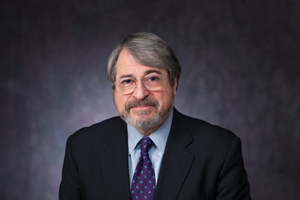 Presentation Description: The medical inspection was the first of several hurdles each immigrant had to clear in Ellis Island’s maze. The medical inspections were conducted by physicians along the immigrants’ route through the building.
Presentation Description: The medical inspection was the first of several hurdles each immigrant had to clear in Ellis Island’s maze. The medical inspections were conducted by physicians along the immigrants’ route through the building.
History of Ellis Island, with emphasis on the Medical Inspection of Immigrants.
Presenter: Dr. Alan Kraut
Presenter: Dr. Alan Kraut
 Presentation Description: The medical inspection was the first of several hurdles each immigrant had to clear in Ellis Island’s maze. The medical inspections were conducted by physicians along the immigrants’ route through the building.
Presentation Description: The medical inspection was the first of several hurdles each immigrant had to clear in Ellis Island’s maze. The medical inspections were conducted by physicians along the immigrants’ route through the building.Dr Kraut: is University Professor of History and an affiliate faculty member of the School of International Service at American University. He is also a Non-resident Fellow of the Migration Policy Institute. Currently, he is the President of the Organization of American Historians, the largest professional organization of American historians. He specializes in U.S. immigration and ethnic history, and the history of medicine in the U.S. and the American Civil War. He co-directs American University's Civil War Institute.
He is the prize-winning author or editor of nine books. Most recently he has co-edited Ethnic Historians and the Mainstream: Shaping the Nation's Immigration Story (2013). CLICK HERE FOR VIDEO
September 2018 Meeting
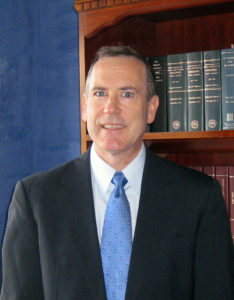 Presentation Description: Learn how to make the most of your time on a research trip to a courthouse, library or other repository from a full-time professional genealogist. Pre-trip planning and use of electronics will be discussed.
Presentation Description: Learn how to make the most of your time on a research trip to a courthouse, library or other repository from a full-time professional genealogist. Pre-trip planning and use of electronics will be discussed.
Efficient and Effective On-Site Research Strategies
Presenter: Victor S. Dunn
Presenter: Victor S. Dunn
 Presentation Description: Learn how to make the most of your time on a research trip to a courthouse, library or other repository from a full-time professional genealogist. Pre-trip planning and use of electronics will be discussed.
Presentation Description: Learn how to make the most of your time on a research trip to a courthouse, library or other repository from a full-time professional genealogist. Pre-trip planning and use of electronics will be discussed.Mr. Dunn has been a Board-certified genealogist since 1999. He is coordinator and instructor of the Virginia Research Track at the Institute of Genealogy and Historical Research (IGHR). Vic won the 2014 Mosher Award for Colonial Virginia Research and is the Official Genealogist of the Order of First Families of Virginia. He is a contributor to major genealogical publications including feature articles in the National Genealogical Society (NGS) Quarterly and NGS Newsmagazine, Northern Virginia Genealogy, Magazine of Virginia Genealogy and Virginia Genealogical Society Newsletter. CLICK HERE FOR VIDEO
October 2018 Meeting
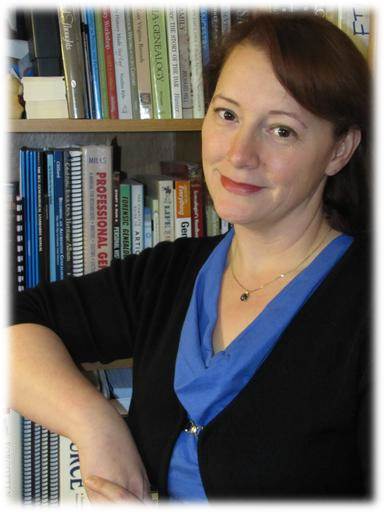 Presentation Description: Testing your DNA for genealogical research is an ever increasing topic of discussion. However, most people do not know exactly what they could get from testing or which of the four major DNA tests to choose. In this lecture Shannon discussed the various DNA tests on the market, who sells them, and how you can use the results in your genealogy research. Various examples were discussed including a case-study. Shannon will also told the Society how to get maximum value from your DNA test and how you might benefit from an upgrade from the basic test package.
Presentation Description: Testing your DNA for genealogical research is an ever increasing topic of discussion. However, most people do not know exactly what they could get from testing or which of the four major DNA tests to choose. In this lecture Shannon discussed the various DNA tests on the market, who sells them, and how you can use the results in your genealogy research. Various examples were discussed including a case-study. Shannon will also told the Society how to get maximum value from your DNA test and how you might benefit from an upgrade from the basic test package.
DNA Test Comparison and What You Can Do With Your Test Results.
Presenter: Shannon Combs-Bennett
 Presentation Description: Testing your DNA for genealogical research is an ever increasing topic of discussion. However, most people do not know exactly what they could get from testing or which of the four major DNA tests to choose. In this lecture Shannon discussed the various DNA tests on the market, who sells them, and how you can use the results in your genealogy research. Various examples were discussed including a case-study. Shannon will also told the Society how to get maximum value from your DNA test and how you might benefit from an upgrade from the basic test package.
Presentation Description: Testing your DNA for genealogical research is an ever increasing topic of discussion. However, most people do not know exactly what they could get from testing or which of the four major DNA tests to choose. In this lecture Shannon discussed the various DNA tests on the market, who sells them, and how you can use the results in your genealogy research. Various examples were discussed including a case-study. Shannon will also told the Society how to get maximum value from your DNA test and how you might benefit from an upgrade from the basic test package.She also presented an introduction on "GEDMatch," a program that allows people who have had their DNA tested by various companies to come together and compare their information.
Shannon Combs-Bennett is an award-winning author, presenter and lecturer on topics ranging from genealogy methodology to DNA. She is a staff genealogist at the National Society of Colonial Dames 17th Century in Washington D.C. Shannon has a BS in Biology with an emphasis in genetics from Indiana University. She also has completed the Boston University genealogy certificate program and the Professional Learning Certificate in Genealogical Studies in American Records from The National Institute for Genealogical Studies. She is currently enrolled in the genealogy master’s program at Strathclyde University, in Glasgow, Scotland. CLICK HERE FOR VIDEO
November 2018 Meeting
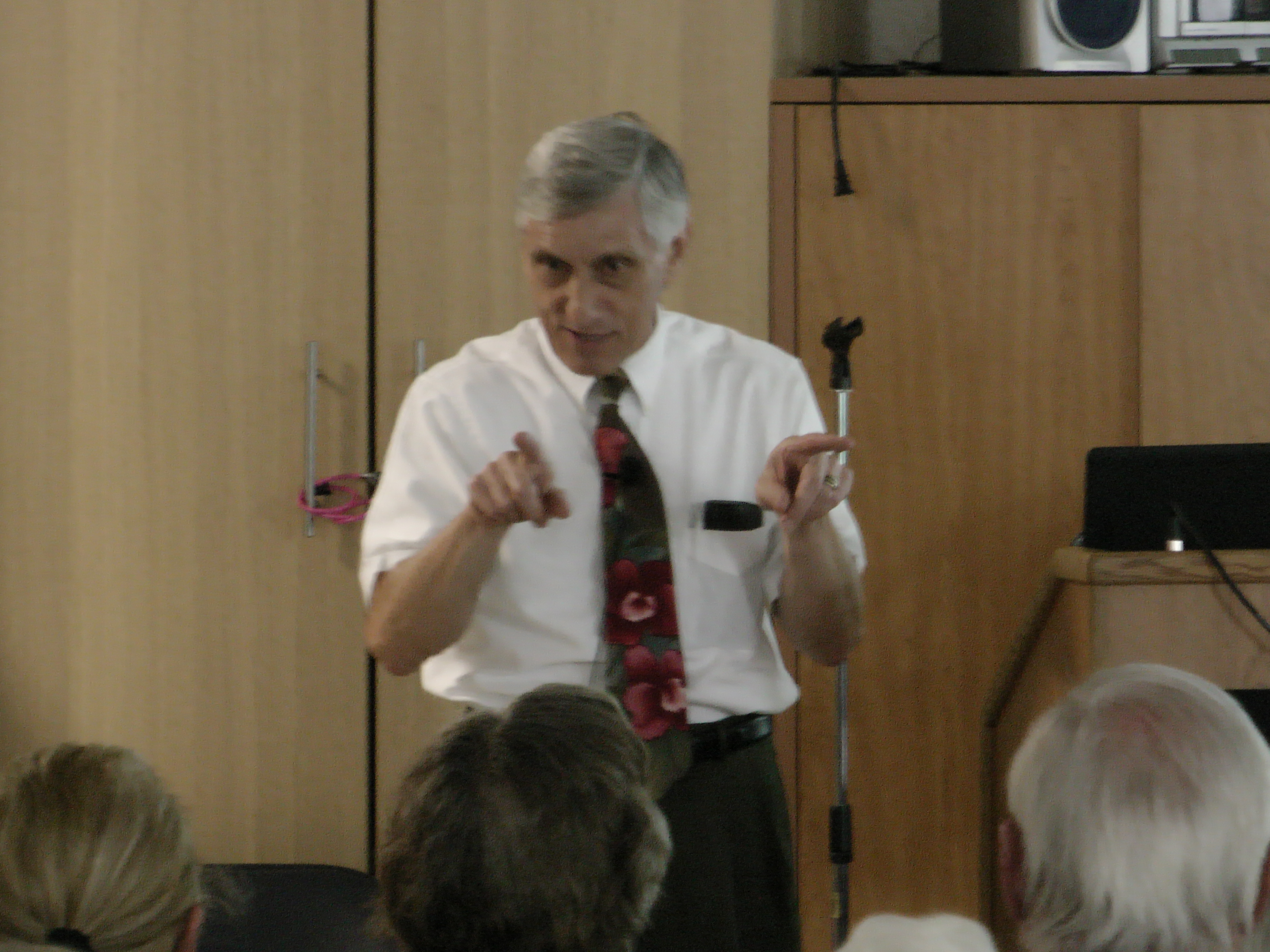 Presentation Description: This lecture explains how a significant population of German-speakers came to reside in France and explores the peculiarities of researching ancestors of Alsace, Lorraine, and Elsass-Lothringen. It discusses when, why and how people from these areas came to the United States during the late eighteenth to the late nineteenth centuries.
Presentation Description: This lecture explains how a significant population of German-speakers came to reside in France and explores the peculiarities of researching ancestors of Alsace, Lorraine, and Elsass-Lothringen. It discusses when, why and how people from these areas came to the United States during the late eighteenth to the late nineteenth centuries.
The Germanic French: Researching Alsatian and Lorrainian Families
Presenter: Dr. John Philip Colletta
 Presentation Description: This lecture explains how a significant population of German-speakers came to reside in France and explores the peculiarities of researching ancestors of Alsace, Lorraine, and Elsass-Lothringen. It discusses when, why and how people from these areas came to the United States during the late eighteenth to the late nineteenth centuries.
Presentation Description: This lecture explains how a significant population of German-speakers came to reside in France and explores the peculiarities of researching ancestors of Alsace, Lorraine, and Elsass-Lothringen. It discusses when, why and how people from these areas came to the United States during the late eighteenth to the late nineteenth centuries.
Dr. Colletta is one of America’s most popular genealogical lecturers. Knowledgeable, experienced and entertaining, he resides in Washington, D.C. For twenty years, while laying the foundation for his career in genealogy, he worked half-time at the Library of Congress and taught workshops at the National Archives.
Indispensable Websites will be reviewed, as well as books and manuals, and the large body of records available at the Family History Library in Salt Lake City.
There is no video for this presentation.